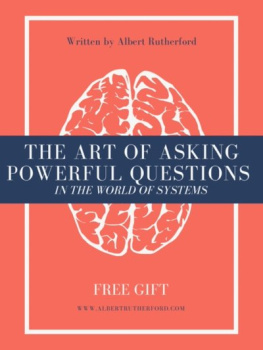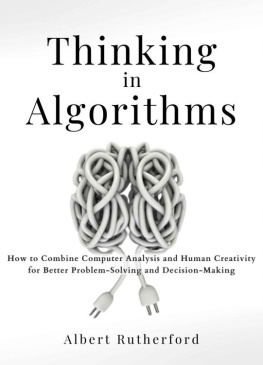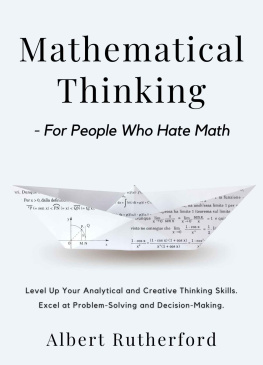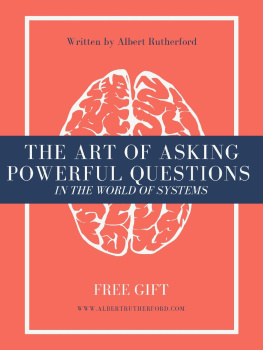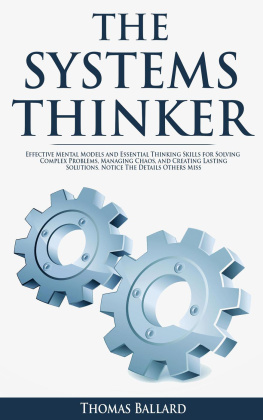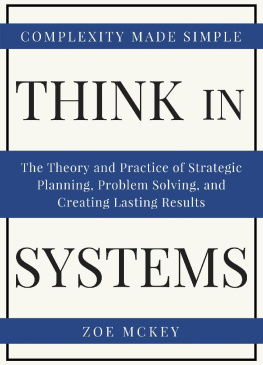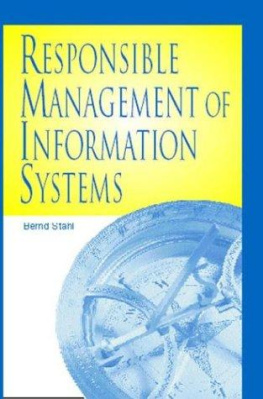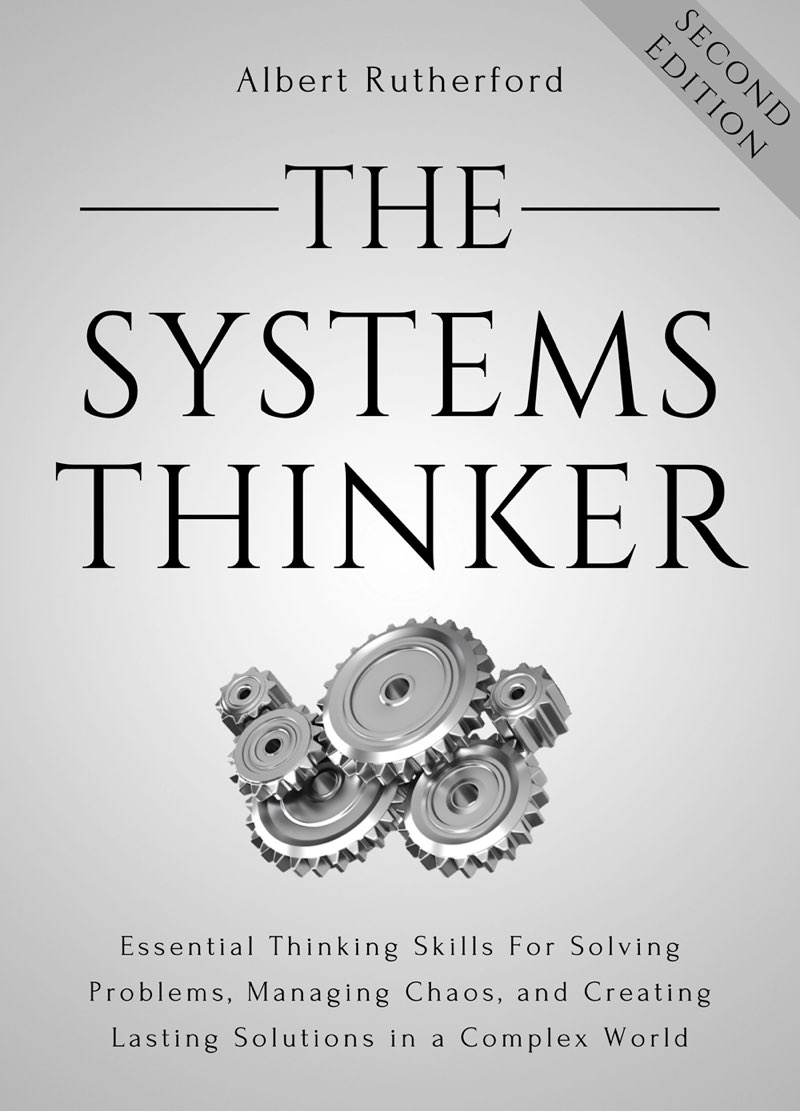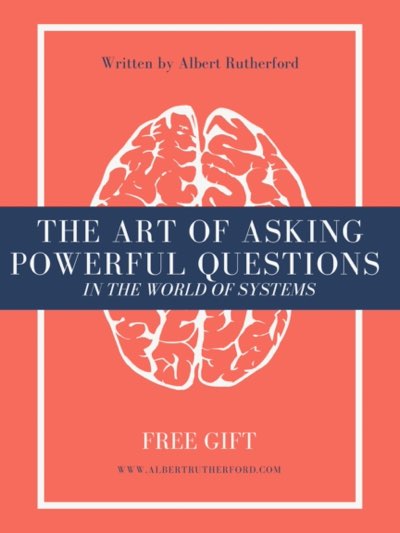Copyright 2021 Albert Rutherford. All rights reserved.
All rights reserved. No part of this publication may be reproduced, distributed, or transmitted in any form or by any means, including photocopying, recording, or other electronic or mechanical methods, without the prior written permission of the publisher, except in the case of brief quotations embodied in critical reviews and certain other noncommercial uses permitted by copyright law. For permission requests, contact the author.
Limit of Liability/ Disclaimer of Warranty: The author makes no representations or warranties with respect to the accuracy or completeness of the contents of this work and specifically disclaims all warranties, including without limitation warranties of fitness for a particular purpose. No warranty may be created or extended by sales or promotional materials. The advice contained herein may not be suitable for everyone. This work is sold with the understanding that the author is not engaged in rendering medical, legal or other professional advice or services. If professional assistance is required, the services of a competent professional person should be sought. The author shall not be liable for damages arising therefrom.
The fact that an individual, organization of website is referred to in this work as a citation and/or potential source of further information does not mean that the author endorses the information the individual, organization to website may provide or recommendations they/it may make. Further, readers should be aware that Internet websites listed in this work might have changed or disappeared between when this work was written and when it is read.
First Printing, 2018.
Introduction
It isnt what we know that gives us trouble, its what we know that aint so. Will Rogers
As humans, we are brilliant beings. This can be both a blessing and a curse. There are times when we revert to our teenage ways and think we know everything we need to about life when nothing could be further from the truth. If there is anything my time on Earth has taught me, it is how little I really know. I was responsible for educating adults and helping them get their start in the world until recently. I am acutely aware I couldnt teach my students everything they will need to know in their lives. The best I could hope for was to give them a thirst for knowledge and a love of learning, to inspire them to be lifelong learners. I planted the seeds of open-mindedness in their developing frontal lobe to receive and analyze new information even when it differs from their beliefs. I gave them the tools they need to find and recognize good reputable sources.
Many people think they have everything figured out and know all the answers. Take the Nazca civilization, for example. They thrived in the desert ecosystem of southern Peru between 100 BC and 800 CE. Then they disappeared about 1500 years ago. While their disappearance has been a mystery, scientists now theorize that the choices they made as a civilization ultimately lead to their destruction. These tragic choices could have been avoided with a bit of humility and critical thinking.
The Nazca civilization lived in the desert where there was a delicate balance between living things that ensure survival. Despite having built a strong and successful civilization, they made a fateful decision that led to their decline. Their environment was home to the Prosopis pallida or huarango tree. This fantastic plant helped the soil to be more fertile and better able to hold in moisture. As well as support the irrigation system the Nazca had built. The huarango tree had the deepest roots of any tree in their area, which helped hold the soil in place and keep it from being eroded by rivers and wind. Also, as with all living things, it was part of natures delicate balance.
The Nazca civilizations aforementioned fateful decision was to become an agricultural society. This may seem like a sound decision, but it led to a chain of unfortunate events. They made the transition to agriculture rather quickly, cutting down many of the huarango trees to make way for planting crops like cotton and maize. The mass eradication of the trees resulted in the decline of the natural benefits they had to offer. When storms like El Nio brought floods, their roots were not there to help hold the soil in place. The irrigation system didnt work well as the trees werent there to keep the needed moisture in the soil to help their crops grow. The fertility of the soil gradually deteriorated. The Nazca were no longer successful in growing their crops. Food became scarce, there was not enough to feed everybody, so their civilization slowly disappeared as their people starved.
One cant help but wonder if the Nazca had understood the science of the huarango trees and considered the long-term consequences of their choices, they might have made different decisions that would not have led to such a devastating outcome.
The story of the Nazca civilization, while is tragic, is not unique. The history of planet Earth is rich with extinction stories and with choices that led to those extinctions. Again, we are brilliant beings. This sometimes is a blessing; other times, it is a curse. Usually, it is a curse for different species and generations who come after the perpetrators of environmental change. One man is not likely to see the long-term consequences of his actions in his lifetime.
How could the simple farmer of Mesopotamia or Mesoamerica know his accounting system and keeping track of his crops would result in e-books? How could the ancient scientist know that his experiment with metal alloys would result in the atomic bomb? To see the long-term impacts of these changes, thousands of years had to pass, and additional developments had to be made.
Life accelerated in the modern age. Thanks to science and engineering, changes have revealed themselves faster. For instance, biochemical and biological engineering helped increase the quantity of food available. Norman Borlaug was an agricultural researcher. He developed a high-yield type of wheat. It was so successful in Mexico, India, and Pakistan that it earned him the Nobel Peace Prize for preventing more than a billion people from starvation. Genetic engineering has helped produce food at higher yields and promised a better life for our children. Physicists can create nuclear power to supply energy to our homes.
Lets take a closer look at the timeline of these innovations. The first biological engineering program started in 1966 at the University of California, San Diego. Genetic engineering, as we know it, being a direct manipulation of DNA by humans, has only existed since the 1970s. The first nuclear power plant opened its gates in 1954, in Obninsk, USSR.
We feel the benefits of these innovations today, even though they happened in our lifetime (the lifetime of fossils like me). Whats even more impressive is that we have already started feeling the secondary impact of some of these innovations.

